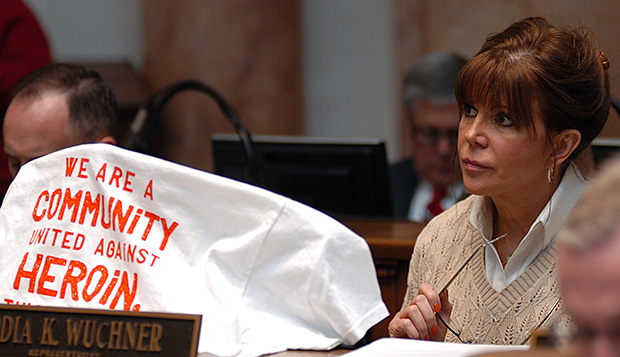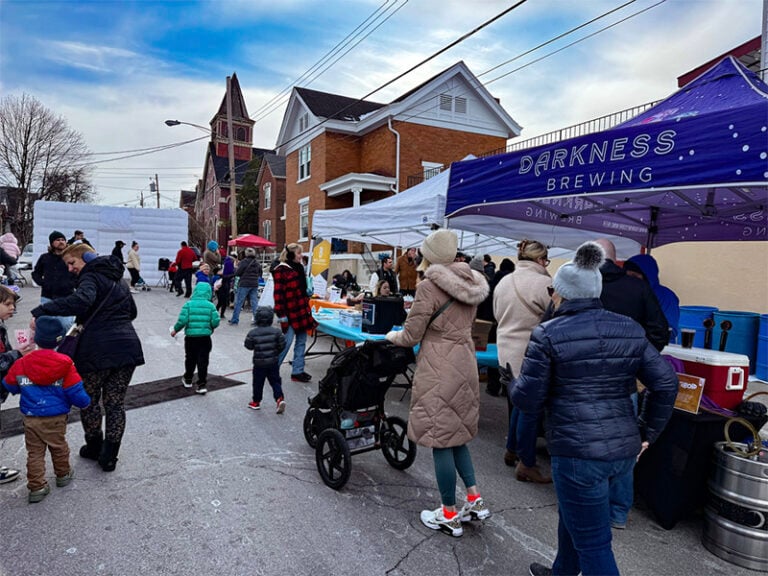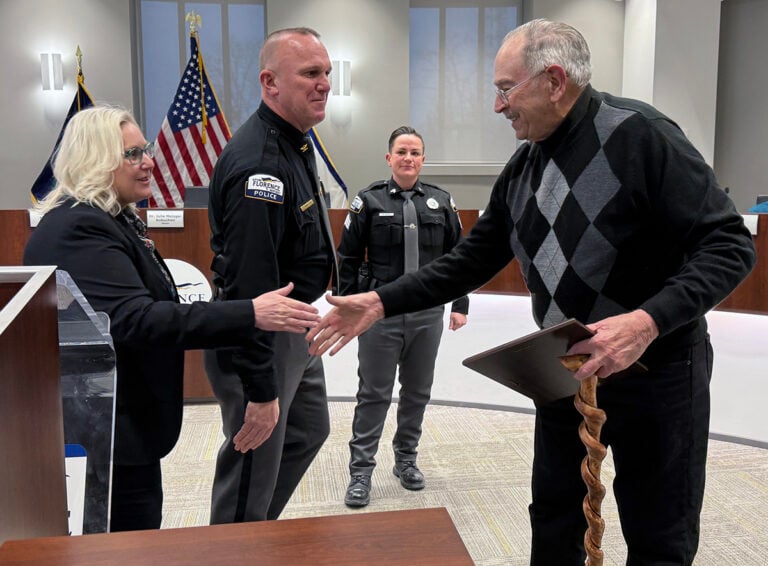
Sweeping changes to the treatment and prosecution of those involved in Kentucky’s heroin trade were unanimously approved by the House last night and returned to the Senate for consideration.
The Senate, which passed its own anti-heroin measure in January, swiftly voted against concurring with the House proposal, setting the stage for continued efforts to pass a bill that both chambers can agree on during the final days of the 2015 legislative session.
The House proposal, attached to Senate Bill 192, includes essentially all of House Bill 213, sponsored by House Judiciary Committee Chairman John Tilley, D-Hopkinsville. That bill, which passed the House 98-0 last month, contains substance abuse treatment options for addicts, tiered penalties for traffickers, “good Samaritan” immunity for those who call for emergency help in case of an overdose, better access to the rescue drug naloxone, and the option for local needle exchange programs authorized at the local government level, among other provisions.
Additionally, a second amendment was attached to the bill that would appropriate $10 million in state funds for substance abuse treatment and drug-related prosecution. The amendment, sponsored by House Majority Caucus Chair Sannie Overly, D-Paris, was added to the bill by voice vote.
The original provisions in SB 192, sponsored by Sen. Paul Hornback, R-Shelbyville, were removed by the House. Those provisions dealt with health care service contracts for inmates.
Tilley said SB 192, as amended by the House, represents “the most comprehensive, common sense, evidence-based, data-driven approach to what is a public health epidemic.” He said the funding component found in Overly’s funding amendment would allow the drug treatment and other anti-heroin provisions added to SB 192 by the House to be funded sooner rather than later.
Overly said funding was proposed in HB 213 for seven different drug treatment and related services beginning in the next state budget cycle. “What (this amendment) would do would be to provide immediate funds beginning in fiscal year 2016 for treatment,” said Overly.
Recent news reports indicate that there were nearly 200 deaths caused by heroin overdose in the Commonwealth in the first nine months of 2014.
Legislation that would shutter Internet cafes doubling as gambling halls has received final passage in the state Senate.
The legislation, known as Senate Bill 28, included an amendment from the state House expressing legislative intent to remain neutral in a pending legal dispute regarding historical horse racing.
Internet cafes are for-profit businesses that sell Internet access for a chance to play computer-based, casino-style games, or sweepstakes, in which customers can win cash prizes, said SB 28 sponsor Sen. Mike Wilson, R-Bowling Green. He said the cafes are located in buildings that contain banks of computers with Internet access. Each purchase at the cafe entitles a customer to a certain number of sweepstakes entries. The customer then determines whether the sweepstakes entries are winners by logging onto a computer.
Officials from Kentucky cities previously testified that they have seen an increase in these businesses throughout the state, often in cities bordering Tennessee, Indiana and Ohio – states that have cracked down on such business. One of the first Internet cafés in Kentucky opened in Bowling Green several years ago. In the last few months, an Internet café opened in Covington.
Wilson said the cafes advertise they are “better than bingo.” Nonprofit bingos in his district have seen revenues decline as much as 40 percent because of the competition, he said.
Provisions to combat dog fighting have been attached by the House to a Senate agriculture bill.
Dog fighting is already illegal in Kentucky, but supporters of the House amendment say additional steps should be taken to prosecute those engaged in it. The amendment would classify the ownership, breeding, training, selling, possessing, or transferring or four-legged animals—including dogs—for the purpose of fighting as first-degree cruelty to animals.
“Kentucky is the only state in the nation that does not regulate dog fighting like every other state,” said Rep. Joni Jenkins, D-Shively, the sponsor of the amendment that was attached by a vote of 62-33 to Senate Bill 143.
Jenkins said that the amended bill would not affect legal activities involving dogs, including field trials, hunting, dog training and other legal activities.
House Minority Floor Leader Jeff Hoover, R-Jamestown, asked the House to rule on whether the amendment was relevant, or “germane,” to SB 143. House Speaker Greg Stumbo ruled that the amendment is relevant, stating that dogs are used in agriculture. That ruling was or challenged, by Hoover and Rep. Tommy Turner, R-Somerset, and the ruling stood by a vote of 43-55. Other challenges to the amendment were also defeated.
Among those lawmakers opposing the amendment and voting against the bill was Rep. Jill York, R-Grayson. York said she feels the amendment could impact legal activities, such as hunting.
“I suppose everyone in here recognizes the need to protect our animals from being used in a perverse fighting environment. The trouble is that while our intentions are pure, I believe that, in this instance, our words are flawed and inadequate,” said York.
The amended version of SB 143 retains the original provisions of the legislation, which would define bees as “livestock” under Kentucky law. SB 143 is sponsored by Sen. Paul Hornback, R-Shelbyville.
SB 143 was returned to the Senate by House members on a 75-13 vote.
A bill to require child abuse prevention and reporting training in Kentucky’s public schools and allow “snow days” to be waived in school districts hardest hit by this winter’s storms was approved today by the House.
SB 119, sponsored by Sen. Julie Raque Adams, R-Louisville, was passed by the Senate last month to require school administrators, teachers, office state, teaching assistants, coaches and other employed by a school district to receive child abuse and neglect prevention, recognition and reporting training through the state by Jan. 31, 2017 then every two years thereafter. Those hired after Jan. 31, 2017, would be required to complete the training within 90 days of being hired, then every two years.
The House adopted those provisions (which mirror language in HB 301, passed by the House 94-0 last month) after adding the “snow days” provisions to the bill. Those provisions would give school districts until June 5 to complete all 1,062 school instructional hours required by the state. Any remaining hours that cannot be made up could be waived by the state.
The adding provisions also clarify that instructional days cannot exceed seven hours, cannot include Saturdays, and that school districts can be open on primary election day if no school in a district is used as a polling place.
“It’s … the exact same bill that the House and Senate agreed upon last year when we came upon this same problem,” according to House Education Committee Chair Derrick Graham, D-Frankfort, who presented the amendment for a vote.
Speaking in opposition to the amendment was Rep. Adam Koenig, R-Erlanger, who was concerned that considerable instructional time is being lost in some districts.
“If we’re going to demand that our kids go to school and that every high school diploma is the same everywhere, then we need to figure out how to make sure these kids are able to go to school for the full term every year,” said Koenig.
School instructional time waivers were allowed last school year with the passage of HB 211 by the 2014 Kentucky General Assembly.
The snow days waiver provisions in SB 119 include an emergency clause, which would make those provisions effective immediately should SB 119 become law.
The bill passed the House on an 87-8 vote. It now goes back to the Senate for consideration of the changes the House made to the legislation.
The Kentucky Legislature Home Page, www.lrc.ky.gov, provides information on each of Kentucky’s senators and representatives, including phone numbers, addressees and committee assignments. The site also provides bill texts, a bill-tracking service, and committee meeting schedules.
To leave a message for any legislator, call the General Assembly’s Message Line at 800-372-7181. People with hearing difficulties may leave messages for lawmakers by calling the TTY Message Line at 800-896-0305.
You may also write any legislator by sending a letter with the lawmaker’s name to: Capitol Annex, 702 Capitol Avenue, Frankfort, Kentucky 40601.
From Legislative Research Commission

















